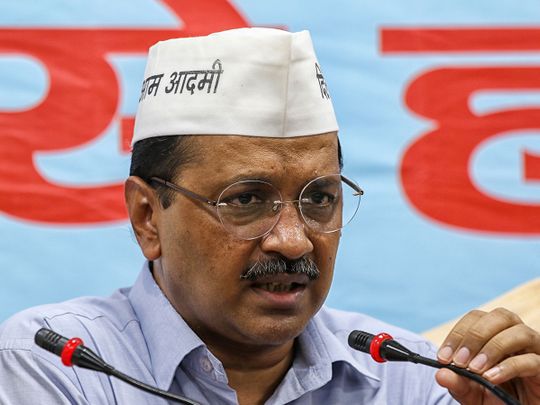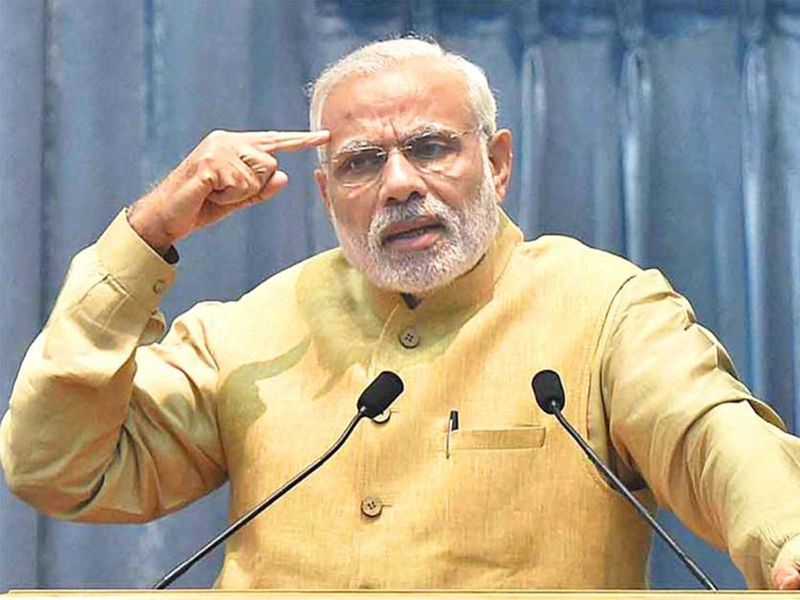
Ahead of crucial state elections later this a year and the general election which is a year and half away, the Indian political discourse has been dominated by the F word these past few months — freebies. What constitutes a freebie?
At the heart of the controversy is a basic question- do measures like free ration for the vast number of India’s poor also come under the freebie category or are they welfare measures? The debate started in July when the prime minister made an analogy with a sweet, called ‘revdi’, accusing his political opponents of offering freebies or a “revdi culture” for votes, saying it is “very dangerous” for the country, its development and well-being.
The comment seemed largely targeted at Arvind Kejriwal and the Aam Aadmi party, known for their welfare schemes in Delhi like free power. The AAP has fast emerged as a key challenger to the BJP, especially in the upcoming state election in Gujarat.
Kejriwal immediately hit back at the prime minister, saying “I’m giving free and quality education to the children of poor and middle-class households in Delhi. I want to ask people, am I distributing free revdis or setting the foundation of the country?”
The BJP has struggled to explain the difference between the centre’s welfare measures and what their opponents are offering. BJP spokespersons have unsurprisingly spent much of their time attacking Kejriwal for “misleading promises”.
As the Prime minister and senior BJP leaders stepped up the rhetoric on the issue, last week India’s election commission waded into the political debate on freebies.
The EC has written to political parties where it has proposed that political parties detail the cost of promises made ahead of elections and tell voters how these could be financed. The idea, say EC officials, is for voters to make an “informed choice” and know clearly how schemes will be financed and for who.
The election commission’s intervention is a case of overreach and problematic for several reasons. Firstly, the EC had itself publicly told India’s Supreme Court in April that that “freebie” and “irrational” are subjective and open to interpretation. In an affidavit to the top court, the EC had said it cannot regulate state policies and decisions which may be taken by a party after they form the government.
This, it said, would amount to an overreach of its powers. They told the top court that it is up to the voters to decide whether the distribution of freebies is financially viable or if such policies have an adverse effect on the economic health of the state.

So what made the election commission do a sudden U-turn only weeks later? They have offered no reason. The EC’s job is to conduct free and fair elections, something it has admirably done for decades. It is not to police how political parties should frame their campaign promises and manifestos. And by reversing their own stand, the EC has done it’s reputation no favours.
The Supreme Court is already hearing a petition on freebies and has earlier observed that the law doesn’t stop political parties from making promises in their election manifesto. The Court added that the manifesto of a political party is a statement of its policy and the question of implementing it arises only if the political party forms a government.
“Can universal health care, access to drinking water, and access to consumer electronics be treated as freebies?” it asked as it sent the matter to a three judge bench.
The apex court is looking at whether it’s own 2013 verdict should be changed wherein it had held that promises of freebies cannot be termed a corrupt practice.
The debate over freebies and welfare measures is best left to the political stage. The election commission has little business wading into this and must leave it to people to judge poll promises.
Nidhi Razdan is an award-winning Indian journalist. She is a Consulting Editor with NDTV and has extensively reported on politics and diplomacy.











